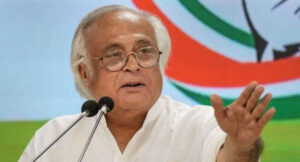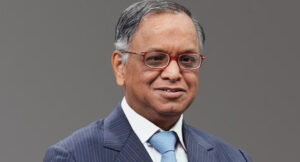The first small rockets ferrying satellites on Indian Space Research Organisation (Isro) design and technology will take at least two more years to reach the launch pad, even as work to find the ideal candidate for the job reaches its final stage.
Twenty-three companies had applied to build Isro’s Small Satellite Launch Vehicle (SSLV), after the organization in 2023 decided to bring in the private sector to fuel the growth of the space sector. Of these, three were shortlisted. According to Pawan Kumar Goenka, chairman of Indian National Space Promotion and Authorization Centre (In-Space), the country’s nodal space agency, the government is “likely to finalize the private player for manufacturing SSLV by May this year.”
While Goenka did not name any of the three companies, a senior official aware of the matter said state-run Hindustan Aeronautics Ltd and Bharat Dynamics Ltd are two of the three companies shortlisted for commercializing the small rocket launcher.
“We are still getting some information from the companies and the evaluation of applications will start by the end of this month,” Goenka said on the sidelines of an event in New Delhi.
The decision to transfer the technology to the private sector was part of the Centre’s strategy to increase the involvement of companies in the space sector. In 2023-end, Goenka, through his decadal vision for India’s space sector, projected it to be worth $44 billion by 2033.
Stakeholders of the space industry said that country’s space firms are yet to truly chase global businesses for commercial orders, as a result of which the impact of the delay of the SSLV may not be as big, since revenue growth could already be low.
“India’s space sector is highly domesticated, and its international linkages are limited to a few players only. The global economic turbulence won’t allow the Indian commercial space sector to go international any time soon,” said Chaitanya Giri, space fellow at global think tank Observer Research.
Giri said that India’s space sector has not been able to leverage domestic enterprises due to the lack of readiness of infrastructure such as the SSLV. As an example, he cited both Reliance Jio and Bharti Airtel partnering with the likes of the UK’s OneWeb, Luxembourg’s SES and this week with Elon Musk’s Starlink for satellite internet services—instead of building their own satellites and launching them with India’s own rockets, which would have generated substantial revenue for India from within India itself.
“We are still at least a few years away from creating a strong bond between a lucrative telecom sector and the nascent space sector. Both sectors will have to confide in each other; the telecom industry must bank on domestic space industry’s capabilities, and the space sector must bank on the orders,” he added.
However, some highlighted that the country needs to rush to capture the interest in launching small satellites commercially, as the world lacks a dedicated launcher for such satellites right now.
“This leaves Isro’s SSLV as the only one with launch capacity—but the manufacturing turnaround of India’s small rocket will need to happen as quickly as possible, if India were to capture an opportune piece of the global space pie,” a space industry veteran said, requesting not to be identified.
To be sure, Goenka’s ‘decadal vision’ has of late met with questions from various corners. On 25 February, Union minister of state for space Jitendra Singh said that India’s space industry is currently worth $8 billion—requiring a compounded annual growth rate of nearly 24% to become $44 billion by 2033.
However, India’s private space startups are yet to start firing on all cylinders. Skyroot Aerospace and Agnikul Cosmos, private firms building small rockets to launch small satellites, have only conducted solitary sub-orbital ‘demonstrator’ or trial launches. Privatization of India’s central space agency’s rockets, the Polar Satellite Launch Vehicle (PSLV) and the SSLV, are also a multi-year process—largely owing to engineering complexities in space.
This has led to stakeholders questioning the potential value that the space sector can generate, particularly when taking into account factors such as the SSLV not being ready until 2027.
However, Goenka doesn’t see any constraints for investments. “Companies will only invest when they see commercial viability. Funding is the biggest concern for startups, but with a ₹1,000 crore venture capital fund kicking in soon and a lot of other funding in the pipeline, I don’t think it should be a concern,” he said. LiveMint









